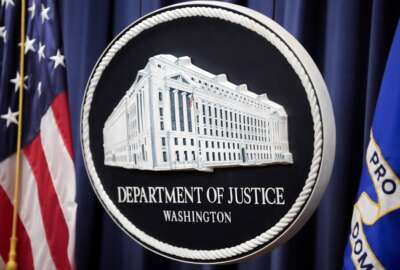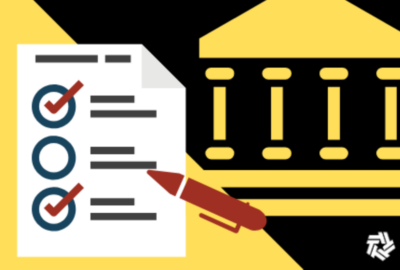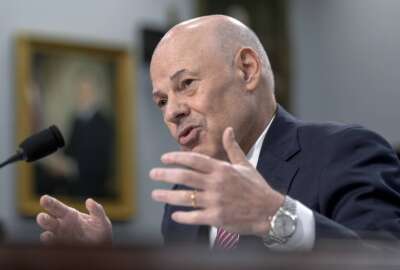Census look to identify ‘misperceptions,’ barriers to participation in 2020 count
The Census Bureau looks to correct the record on fears and common misconceptions the public has shared about the upcoming population count.
As the Trump administration defends the inclusion of a citizenship question on the 2020 census in court starting on Monday, the Census Bureau looks to correct the record on fears and common misconceptions the public has expressed about the upcoming population count.
According to the Census Barriers, Attitudes and Motivators Study (CBAMS) the agency released Oct. 31, nearly a quarter of respondents said they were “extremely concerned” or “very concerned” that the Census Bureau would share their answers with other government agencies.
And ahead of the first internet-driven population count, nearly 30 percent of respondents to the CBAMS survey expressed similar concerns over whether the Census Bureau would keep their responses confidential.
Acting Census Bureau Director Ron Jarmin, in a blog post on Nov. 1, said the survey’s findings, while consistent with previous Census Bureau research, determined that “distrust in the Census Bureau and government may complicate outreach to some communities.”
“There are persistent knowledge gaps about the 2020 Census scope, purpose and constitutional foundation,” he wrote. “There are misperceptions about the purpose of the 2020 Census. Many know the basic census facts, but not much more.”
While Jarmin pointed to research showing a decades-long decline in overall trust in government and major institutions, the CBAMS results show that 59 percent said they did not trust the federal government.
More than 17,500 people responded to the CBAMS survey, which Census sent to more than 50,000 households between February and April. The survey oversamples Asian-Americans, African-Americans, Hispanic-Americans and includes 11 focus groups on hard-to-count populations.
Sarah Evans, the vice president of qualitative research at PSB, a company working with Census contractor Young & Rubicam, said her team encountered a “range of responses” to the addition of a citizenship question.
“Some people saw the citizenship question as a barrier to participation. Others were more neutral. We had some people who had positive opinions about the addition,” Evans said last Thursday at the Census Bureau’s National Advisory Committee (NAC) on Racial, Ethnic and Other Populations in Greenbelt, Maryland.
Others in the focus groups, however, expressed mistrust of the census even before the addition of a citizenship question.
“We had some Spanish-speaking participants saying people are afraid,” Evans said, paraphrasing a participant’s response. “It doesn’t matter if you ask whether or not you’re a citizen. The first question they ask you is ‘Are you Hispanic or Latino?’ That’s enough, that’s all they need, and people are scared.”
Enumerators more productive in field test
Jarmin said enumerators using iPhones to conduct their follow-up responses during the end-to-end field test in Providence County, Rhode Island were 50 percent more productive than when they last went door-to-door in 2010.
“That’s a bit of news that is very welcome, from our perspective, looking at the prospect of trying to hire hundreds of thousands of people in a very tight labor market. So the fact that they’ll be more productive is somewhat reassuring for us,” he said at last week’s NAC meeting.
The Census began its Providence end-to-end field test in April.
About 52 percent of households in the end-to-end test responded on their own without follow-up from enumerators, a rate Jarmin said was “higher than expected,” considering the field test had no advertising budget.
Of the households that did respond, 61 percent responded online, while 31 percent answered by submitting the traditional paper form. More than 7 percent responded to the census test over the phone.
“This is the first census with three response options available to the public,” Jarmin said. “Folks can choose the method that best suits their needs.”
Census ‘doing all we can’ on cybersecurity
The Census Bureau has made several assurances to the public that, from a cybersecurity perspective, it is doing everything it can to protect information collected during the 2020 count.
“We’ve been working with cybersecurity experts to make sure we are doing all we can to ensure our information is protected and secure. We have security controls in place to protect, isolate and respond to any attempted cyber attacks,” Jarmin said. “This is something we’ll continually be monitoring and updating and improving into the 2020 census and beyond to make sure we stay up on the latest threats as best we can.”
In August, Kevin Smith, the Census Bureau’s chief information officer, gave an in-depth look at how the agency plans to defend against internal and external cyber threats.
Copyright © 2024 Federal News Network. All rights reserved. This website is not intended for users located within the European Economic Area.
Jory Heckman is a reporter at Federal News Network covering U.S. Postal Service, IRS, big data and technology issues.
Follow @jheckmanWFED






